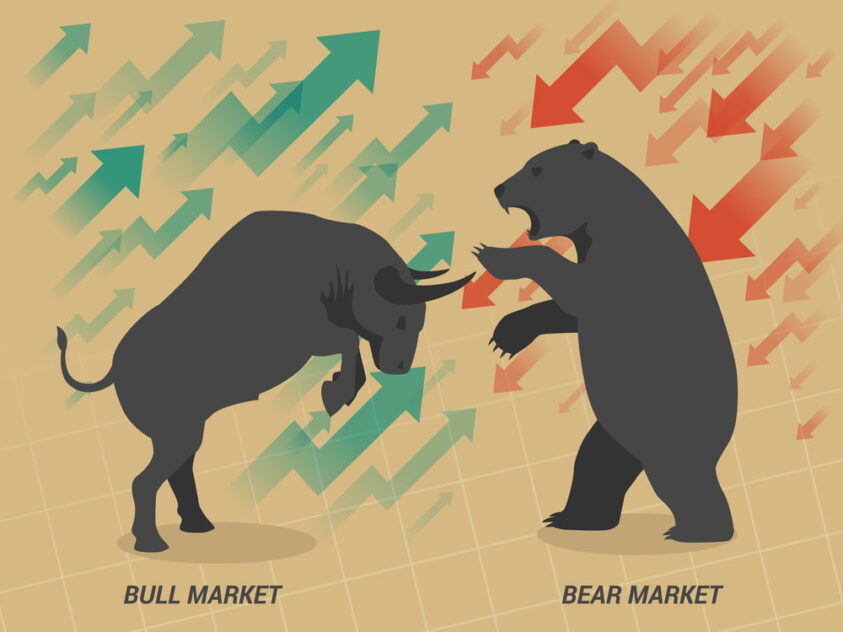By Devanesan Evanson
“After all, what does the stock market sell us if not the unfounded hope of a rosy future?” – Japanese writer Haruki Murakami (b. 1949)
“The stock market is filled with individuals who know the price of everything, but the value of nothing.” – American investor Phillip Fisher (1907-2004)
The above two quotes aptly describe the erratic nature of the stock market that investors must pay heed to, lest they stand to lose massive fortune by the sole virtue of allowing greed to get over them or for assuming that good times will last forever.
Drugmakers Pfizer-BioNTech and Moderna recently revealed that the COVID-19 vaccines they are developing can reduce an individual’s chances of contracting COVID-19 by about 95% and 94.5% respectively.
Such positive developments have prompted another rally in stock markets around the world. Even amid a COVID-19 infection spiral, stock market records were broken at Wall Street during Nov 16 overnight trading with the Dow Jones Industrial Average soaring 470.63 points or 1.6% to close at 29,950.44 – only about 50 points shy of the 30,000 mark, a level it has never crossed in its history.
At the same time, the Nikkei 225 index touched a 29-year high on Nov 16 after the Japanese economy posted its first expansion in four quarters and as progress in developing a COVID-19 vaccine continued to lift global markets.
The FBM KLCI was not left behind. Bolstered by these positive developments, the benchmark index had increased 85.83 points or 5.6% to 1610.15 on Nov 16 from 1,524.32 points on Nov 9 as investors piled into banks and leisure stocks while reducing their stakes in glove makers – in pursuit of an “economic re-opening” investment theme on the positive development of a COVID-19 vaccine.
No doubt the latest development has allowed investors “to dare hope” that an ultimate cure is underway, though many challenges remain ahead.
A major concern is the production of vaccines which is expected to remain in short supply till 2021. Besides, the distribution of the vaccine will be another daunting challenge as the two vaccines required the doses to be kept at between -70°C (for Pfizer-BioNTech) and -20°C (Moderna) to remain effective.
Moreover, to be effective in stopping the spread of the virus, at least 70% of the population of the world is required to be vaccinated. Hence, it will take a long time to produce the vaccines needed.
Sustainability factor
Dozens of listed biotech and healthcare companies have entered the race to produce treatments or cures for COVID-19 since March 2020 when the pandemic swept through the world.
On a similar note, many more have jumped into the personal protective equipment (PPE) sphere that range from gloves to rubber gloves, face masks/material for face masks, protective suits, hand sanitisers or by associating themselves with the pharmaceutical and healthcare industry.
With so many companies – from multinationals to large-, mid- and small-cap counters – having wooed investors by promoting themselves as thematic players of the COVID-19 pandemic, the utmost concern is what will happen if the hype over the COVID-19 pandemic diminishes all of a sudden?
Over time, history has proven time and again that such euphoria can start to wane with the effluxion of time.
While doubts still linger around the potential vaccine, investors must be wary that their welfare – notably the financial risk that they have to undertake – is never the concern of brokers or bankers.
Stock market is detached from real economy
With stock market valuations becoming more stretched in recent times, investors are reminded to bear in mind that there is a vast disconnection between the stock market and real economy.
Markets serve to price in the future today, hence asset prices will always run ahead of fundamentals, regardless of the current doldrum state of economy and the burgeoning COVID-19 cases recorded globally.
While World Health Organization chief Tedros Adhanom Ghebreyesus hailed “encouraging” news about COVID-19 vaccines, he also expressed concern about surging cases in many countries.
“We remain cautiously optimistic about the potential for new tools to start to arrive in the coming months,” he told a virtual press briefing. “This is no time for complacency. A vaccine on its own will not end the pandemic.”
As of Nov 19, global COVID-19 infections have soared past 57 million cases with more than 1.36 million deaths while health experts are cautioning that there are still difficult and dangerous months ahead.
The harsh reality, therefore, stems from the very fact that the stock market – at least in theory – is only interested in future corporate earnings growth, hence there is nothing surprising about it being disconnected from the real world.
The economy can be doing extremely poorly, but flushed with liquidity, notably from the government-induced stimulus packages – coupled with a low interest rate environment and the privilege of loan moratorium – the stock market will thrive.
Devanesan Evanson is the CEO of the Minority Shareholders Watch Group, an independent research organisation to encourage good governance among public listed companies with the objective of raising shareholder value over time. He can be reached at [email protected].









